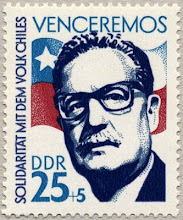Jonathan Orsi
English 431
Nabokov.
Master of Puppets
“Ye airs and winds, ye elves of hills, of brooks of woods alone, of standing lake, and of the night approach ye everyone!” Medea invokes the unseen spirits, she conjures her orchestration, and with her powers she “makes the calm seas rough and makes the rough seas plain, And cover all the sky with clouds and chase them thence again.” With these words, we soar back to Ovid. Entranced and enchanted, with dancing visions we are spellbound. The poetic performance, the spectacle before us, has been composed and conducted with careful wit. Through Ovid the Gods speak, through his characters and stories speak Ovid, singing the soul’s song of metamorphosis. This surrogate storytelling reappears throughout time; it serves the necessary illusion of production. Much as Shakespeare’s theater is not only a stage for his actors but a stage for his own voice. As with our poetic puppeteer Nabokov, we are at witness to literary ventriloquism. We never read Nabokov ‘straight from the horse’s mouth’ as it were, rather we read the vicarious voice of Nabokov, portrayed by, and through his invented puppets. With his masterful arts Nabokov creates characters and worlds, dictating and directing them with tethers, tied tight with poetry.
Nabokov uses literature as a very thin, yet extravagantly woven screen between us the reader, and himself the author. It is on this veil Nabokov conveys his voice and ideas, the projection: an irresistible image of literary prose. The screen though, keeps separate the audience to the truth authorial voice, or creator. It is if we are trapped in Plato’s Allegory of the Cave and we are only given shadows of Nabokov’s figure. The term shadow here, should be taken as a grim analogy, for the shadows cast by Nabokov are some of the mot colorful and vivacious yet cast on the page.
What is essential to understand, is that though the dialogue and ideas, the entire extent of written material has come from Nabokov’s hand, it is intended to be read and understood from the narrators mouth. Albeit fictitious, and entirely fabricated, the narrator speaking for Nabokov speaks with careful and intentional accents, and varied perceptions. It is almost as if each narrator applies their own filter to Nabokov’s voice, like holding a candle behind a piece of colored glass. To understand the intention or simply to recognition the placement of this glass is paramount.
In many ways, Nabokov’s characters could be considered a medium, especially now, in reference to the mediums between the dead and living. Crossing over however, the voice must pass through subtle distortions. Michael Wood discusses this veiling in is critical series off essays, The Magician’s Doubts stating, “Vladimir Nabokov himself is not going to show up anywhere here: there are only impersonations.(109)” This masking however, should not be considered or confused with any type of weakness, rather it is his greatest strength. It is these mouthpieces, these elaborate characters we are enthralled with. There is some debate on the likeability of characters such as Humbert, Kinbote, and Hugh (a rapist, a narcissist, and a murder respectively) but it is the elegance with which Nabokov manipulates and maneuvers these puppets, that creates and harbors our affinity with them.
Nabokov’s characters even seem to take on the role of authorship as well. With Pale Fire, the John Shade services the role of poet. It is from John Shade’s dreary and macabre life that the poem Pale Fire flowers. The invented character has been granted life by the creator. Life breathed into him by means of flowing language John Shade is created as he is, as he has been. Like a Bukowski poem Shade is, “Born like this, into this.” The characters are created, given life, but they: their history and personage are entirely controlled. Deplorable behavior and all, Nabokov’s characters are entirely intentional and entirely at bay to Nabokov’s direction. In his book, The Magician’s Doubts, Michael Wood expands upon this, invoking Socrates when he speaks to Phaedrus,
Writing you know, has this strange quality about it, which makes it really like painting: the painter’s products stand before us quite as though they were alive; but if you question them, they maintain a solemn silence. So, too, with written words: you might think they spoke as though they made sense, but if you ask them anything about what they are saying, if you wish and explanation, they go on telling you the same thing over and over forever.
Wood, through Socrates is enunciating this idea that, though the characters take and lead their own directional lives, they are still constrained by and to Nabokov’s artistic vision. Wood also beckons Humbert on this matter when he discusses opening King Lear, finding that, no matter how many time the story is opened, it shall never change, “never shall we find the king banging his tankard in high revelry.” As much as Shakespeare and Nabokov give freedom and life to their invented characters, they are still very much shackled or strung to the authors will.
Nabokov though, doesn’t simply cast his figure in colorful shades of shadow; he sheds authorship onto his them.

Where's the rest of the paper?! I really like your angle but I am curious to know what you think Nabokov is saying through his characters...and I love the title, ha ha.
ReplyDelete